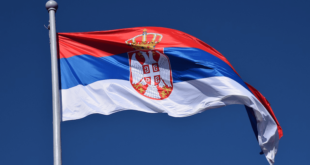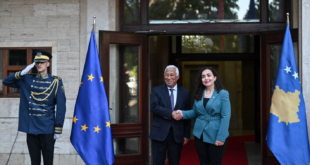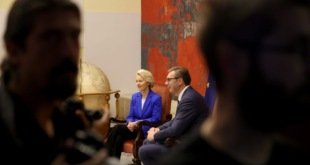Serbia will on Monday file a countersuit before the International Court of Justice, ICJ, against Croatia for genocide allegedly committed against Serbs during the war in 90s and World War II.
“There is a lot of material which will turn on the lights on the international stage and show what happened on the territory of Croatia, 60 years ago and 15 years ago, in the right light,” Serbian Foreign Minister Vuk Jeremic said.
Croatia filed genocide charges against Serbia to the ICJ in 1999, demanding Belgrade punish all perpetrators of war crimes, return cultural property to Croatia and pay for war damages. The Serbian government announced its intentions to file a countersuit on New Year’s eve.
According to RTS, Serbia’s countersuit is in five volumes and contains details about crimes committed against Serbs in Croatia in the period between 1991 and 1995. The countersuit also includes a historical account of Serbo-Croatian relations, with a focus on World War II and the mass killing of Serbs in the notorious Jasenovac concentration camp.
Serbia’s government has not said whether it has to gain the approval of the UN’s General Assembly in order for the ICJ to take the case on, as it did for the Court to accept the case brought by Serbia against Kosovo’s unilateral declaration of independence.
Croatia has dismissed Serbia’s claims. Prime Minister Jadranka Kosor said her country is prepared and “can prove that there was in fact Serbian aggression on Croatia’’.
“Croatia was drawn into a war which it did not want… and we have all the facts to prove that historical truth,” Kosor said.
President Stjepan Mesic said it “will be very difficult” for Serbia to prove that Croatia had committed crimes against it. “Not a single Croatian soldier had crossed the border into Serbia or killed someone on Serbian soil. It is equally true that not a single house in Serbia had been set on fire by Croatian soldiers and no town in Serbia had been bombed“ by Croatian forces, he said. The ICJ has not begun hearing Croatia’s case.
Nevertheless, politicians from both countries have emphasised the need to continue dialogue. Jeremic said his government will continue to build good neighbourly relations, and cooperate with Croatia.
And when asked by reporters if Serbia’s move will affect bilateral relations, Kosor said that it would not. “This is a part of the past, and we share the common future and we would like to live as good neighbours,” she said.
As a result, analysts have largely attributed the countersuit to political bluff intended for a domestic audience. Professor at the University of Zagreb, Zarko Puhovski, said he thinks it is unlikely that Croatia will withdraw its suit now that Serbia has lodged its own.
“These are obviously political suits, and there is no doubt among experts that the prospect of either party winning their process does not exist,” daily Danas quoted Puhovski as saying.
Serbian President Boris Tadic said that there is no doubt that the move will bring “a new stage of relations that will include the court process before the International Court of Justice.”
“But at the same time we want to believe that it is possible that Croatian and Serbian institutions will sit at the table in future and try to establish, through a persistent and laborious process, a possible out of court solution that would satisfy the principle of justice and fairness, but also take care of victims,” Tadic said.
Director of the Belgrade Centre for Human Rights, Vojin Dimitrijevic, said both countries are wasting money and time, since the suits have no chance of success.
“In order to qualify for something like genocide, the intent to exterminate, destroy a national, racial or religious group should be determined. Only the massacre in Srebrenica in 1995 has been qualified as genocide on the territory of former Yugoslavia (in recent years),” Dimitrijevic said.
 Eurasia Press & News
Eurasia Press & News



